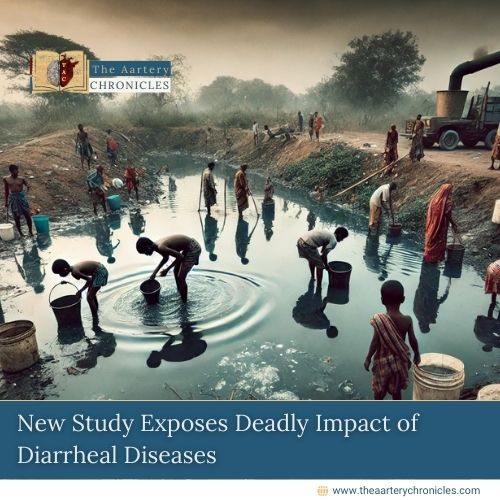

New Study Exposes Deadly Impact of Diarrheal Diseases
A recent study published in The Lancet Infectious Diseases has revealed that diarrhoea continues to be a major cause of death among children under five and elderly individuals, despite significant progress in reducing fatalities over the past three decades. The study, part of the Global Burden of Disease (GBD) project by the Institute for Health Metrics and Evaluation (IHME) at the University of Washington, highlights that while deaths from diarrheal diseases dropped by 60% between 1990 and 2021, they still accounted for 1.2 million deaths worldwide in 2021.
Who Is Most Affected?
Children under five remain the most vulnerable, with the highest death rates from diarrheal diseases. However, older adults aged 70 and above also face significant risks, making these infections a leading cause of death across all age groups.
Regionally, sub-Saharan Africa saw the highest mortality rates among children under five, with over 150 deaths per 100,000 people. In South Asia, the elderly population was disproportionately affected, with 476 deaths per 100,000 individuals in this age group.
Preventive Measures and Strategies
The researchers emphasize that more targeted efforts are needed to address the root causes of these infections. For example:
- Strengthening vaccination programs to prevent infections.
- Prioritizing clean water and sanitation initiatives.
- Targeting specific microbes and risk factors with evidence-based solutions.
As Dr. Hmwe Hmwe Kyu, one of the study’s authors, noted, “While we’ve made significant strides, a comprehensive approach combining life-saving treatments and preventive measures is essential to further reduce the burden on global health systems.”
Call for Global Collaboration
The authors suggest that integrating new vaccines into existing immunization programs could lower manufacturing costs and simplify vaccination schedules. By adopting such strategies, governments and health organizations can better combat diarrheal diseases and save millions of lives globally.
The study recognizes that the reduction in mortality rates can be attributed to several significant health interventions:
- Oral Rehydration Therapy (ORT): A simple solution that saves lives by treating dehydration caused by diarrhea.
- Better Sanitation: Clean water and improved hygiene are helping prevent the spread of disease.
- Vaccines: Global campaigns, especially for rotavirus, are protecting kids from severe diarrhea.
Conclusion
Although global deaths from diarrhoea have dropped significantly, the fight is far from over. Children in sub-Saharan Africa and elderly individuals in South Asia remain at high risk. With a multipronged approach that combines treatment, prevention, and targeted interventions, we can continue to make progress in reducing the devastating impact of diarrheal diseases worldwide.
Source: Inputs from various media Sources
I’m a pharmacist with a strong background in health sciences. I hold a BSc from Delhi University and a pharmacy degree from PDM University. I write articles and daily health news while interviewing doctors to bring you the latest insights. In my free time, you’ll find me at the gym or lost in a sci-fi novel.









